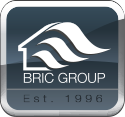2022 has marked a turning point in the hotel industry, and as a result, global hospitality has reached the end of the pandemic tunnel. The latest EY report on hotel investment shows the operating performance has risen this year and now stands close to 2019 levels. RevPAR has risen almost universally, and demand remains strong.
RevPAR in global hospitality this year
The EY Hotels Global Asset Management Report published earlier this month looks at the world of hospitality and evaluates its performance this year. Its conclusion makes for bullish reading since it paints an overall picture of optimism for the industry.
The report’s highlight comes in its affirmation that “the global lodging industry has turned a corner in 2022”. It finds that operating performance has recovered significantly since 2020 and currently sits close to pre-pandemic levels.
Hotels in the Americas, Middle and Europe are leading the recovery, with some countries reaching peak RevPAR rates in the summer. For example, in the US, RevPAR rose by 6.4% between January and September compared to the same period in 2019. The full year is expected to show an increase of 7.7%.
Average daily rates up on 2019
The EY report points out that global hospitality maintained “some level of rate integrity” at the height of the pandemic. As a result, many establishments were able to raise their average daily rates during 2022. In many instances, they increaesd to higher levels than in 2019.
As the graph below illustrates, hotels throughout the world except for those in Asia Pacific had higher average daily rates in the first nine months of this year than during the same period in 2019. In Brazil, hotel rates rose by 47%.
Demand for hotels
According to EY, the demand for leisure travel is behind the strong recovery in global hospitality. When it comes to business travel, recuperation has been slower due to several factors. They include “environmentally friendly corporate strategies favouring virtual meetings” and a preference to work from home. Many analysts believe global business travel spending will not return to 2019 levels until 2026.
In the face of this prolonged recovery, EY suggests that hotel management turns to alternative business travel arrangements. For example, the report advocates the provision of space for digital nomads. This type of traveller has opened up numerous opportunities in locations able to offer the right accommodation in the right destination. For instance, Ceará in Northeast Brazil where high-end resorts on the beach offer kitesurf installations.
Outlook for global hospitality in 2023
Despite rising interest rates and inflation, EY believes that economic headwinds have had a limited impact on the hotel industry’s fundamentals. The report states that pent-up demand will “continue fueling performance”.
As a result, it expects the hospitality sector’s recovery to continue into 2023. However, it will be strongest among hotel managers and operators who “embrace creative solutions” to appeal to demand, particularly among business and group travel.
(Source: EY)











